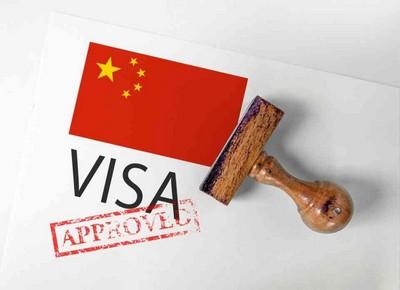
China’s expanding visa-free policy enhances inclusive globalization
Global Times
Starting Monday, China began implementing a trial visa-free policy for ordinary passport holders from Saudi Arabia, Oman, Kuwait and Bahrain. With this expansion, China now offers unilateral visa-free entry to 47 countries. Not long ago, China extended its unilateral visa-free policy to Latin America and the Caribbean (LAC) by granting visa-free entry to citizens of Brazil, Argentina, Chile, Peru and Uruguay, and launched the “ASEAN visa.” It has now achieved full visa-free coverage for Gulf Cooperation Council member states. These moves demonstrate that China has been steadily expanding its visa-free circle. The Global Times invited scholars both at home and abroad to discuss the conveniences brought by China’s continuously improving entry policies and their broader significance.
Muhammad Abdurrohim, a research coordinator of ASEAN-China Research Center of Universitas Indonesia
China’s visa facilitation policies signal a strong commitment to strengthening ties and connectivity with Southeast Asia. The “ASEAN Visa,” which applies to the 10 ASEAN countries and ASEAN observer Timor-Leste, could significantly boost business exchanges and cultural connectivity between China and the region. Many Indonesians hope that China will expand visa-free access to Indonesia soon, given the strong economic and people-to-people links between the two countries. More broadly, the more we connect and communicate with China, the better we can understand the country.
Based on my personal experience as someone who has traveled and studied in China, I believe that visa-free or simplified visa processes offer significant practical benefits for foreigners. A visa-free policy would enable quicker visits for market exploration, negotiations and trade, while also boosting tourism. Easier entry encourages more Indonesian tourists to visit and gain a better understanding of China. Additionally, simplified visa processes enhance academic and cultural exchanges, preventing students, researchers and artists from encountering bureaucratic barriers that hinder participation in conferences, collaborations and cultural events. Improved mobility could foster deeper mutual understanding, allowing Indonesia to gain a fuller appreciation of China and its values.

Easier travel fosters economic cooperation and people-to-people exchanges between China and ASEAN. Indonesian businesses can explore more trade opportunities, while tourism and cultural visits increase on both sides. These visa policies also enhance China’s image as an open nation, encouraging mutual understanding and reshaping perceptions through education, arts and soft power.
China’s visa facilitation is a win-win for ASEAN, including Indonesia. These policies can facilitate economic growth and also improve China’s global standing as an open and connected nation.
China’s recent visa facilitation policies, such as the “ASEAN Visa” and the 30-day visa-free trial, demonstrate the country’s determination to proactively expand its opening-up to the outside world. These measures not only simplify the entry procedures but also send a clear signal to the international community that China welcomes cooperation and shared development. As an Iranian, I particularly notice China’s emphasis on emerging markets in the Middle East, Southeast Asia and other areas. Such policies help eliminate “visa barriers,” promote regional connectivity and align with the trend of accelerated personnel flow in the context of globalization.
For example, my personal experience in China illustrates how the simplification of visa procedures has significantly enhanced efficiency. First, for business activities, short-term meetings or visits no longer require lengthy applications, facilitating immediate cooperation among enterprises. Second, for academic exchanges, international scholars can attend conferences and conduct research visits more conveniently, which undoubtedly promotes knowledge sharing. Third, in the tourism industry, visa-free policies have directly stimulated inbound tourism. Moreover, measures such as e-visas and port visas have reduced both time and economic costs, making foreigners more confident in their “China experience.”
From the perspective of economic and trade cooperation, such measures will simplify visa procedures, attract more foreign investors to visit and invest in China, and enhance trade facilitation. For instance, Middle Eastern enterprises are increasingly willing to see China as a priority partner. Moreover, from the perspective of cultural exchanges, China’s positive attitude toward openness has increased the flow of students, artists and researchers, promoting cross-cultural understanding. China’s history and modern achievements are better recognized by the world through more on-site visits. These policies have also broken the Western stereotype of China as “closed.” China has become an advocate of inclusive globalization, especially for developing countries.
I believe that in the future, China can further expand the list of visa-free countries to include more “Belt and Road” partners and optimize services within the country, such as providing multilingual guidance and facilitating payment options, to consolidate the achievements of its opening-up.
Starting June 1, China began implementing a unilateral visa-free policy for holders of ordinary passports from five LAC countries: Brazil, Argentina, Chile, Peru and Uruguay. This major diplomatic initiative reflects China’s firm commitment to high-level opening-up and its strategic vision for advancing relations between China and LAC countries.
From a geographical perspective, this marks the first time China has extended its unilateral visa-free policy to LAC countries, making it a pioneering move. Previously, China’s visa-free arrangements primarily covered countries in Europe, Asia and Oceania. By including five key LAC nations in its visa-free “circle of friends,” China has not only expanded the geographical reach of its policy but also demonstrated a global outlook in its diplomatic strategy and a strong emphasis on emerging markets.
From a broader diplomatic strategy perspective, this move is a concrete practice of China’s Global Civilization Initiative, which aims to promote dialogue and mutual learning among civilizations and build a more open and inclusive international order.
The development of China-LAC relations provides a historical context for understanding this policy. Since the concept of a China-LAC community with a shared future was proposed in 2014, the two sides have enjoyed over a decade of growing ties, achieving fruitful outcomes in political trust, economic cooperation and people-to-people exchanges. Against this backdrop, the visa-free policy can be seen as both a consolidation and an upgrade of existing cooperation, laying a stronger people-to-people foundation for more comprehensive engagement in the next stage.
The visa-free policy for the five LAC countries is expected to generate broad and far-reaching positive effects in the economic sphere, with tourism revival being the most immediate benefit. Following the policy announcement, according to international travel platforms, these countries have shown significantly greater interest in visiting China. This trend is expected to inject new vitality into China’s hospitality, dining, transport and retail sectors. The policy will also significantly reduce transaction and time costs for LAC business people visiting China, effectively boosting bilateral trade and investment. For LAC entrepreneurs already operating in China, the policy offers direct benefits.
China’s expanding visa-free “circle of friends” is more than a convenience measure; it is a key pillar of China’s diplomatic strategy, representing both high-level opening-up and practical cooperation with the Global South. China’s commitment to opening-up marks a departure from the Western-dominated practice of “visa politics” and demonstrates its strategic resolve to remain open as it develops, especially as the US implements a “travel ban” and tightens visa restrictions. Against the backdrop of Western-led “de-risking” narratives, China’s visa-free policies contribute to defining globalization by emphasizing connectivity and shared development.
